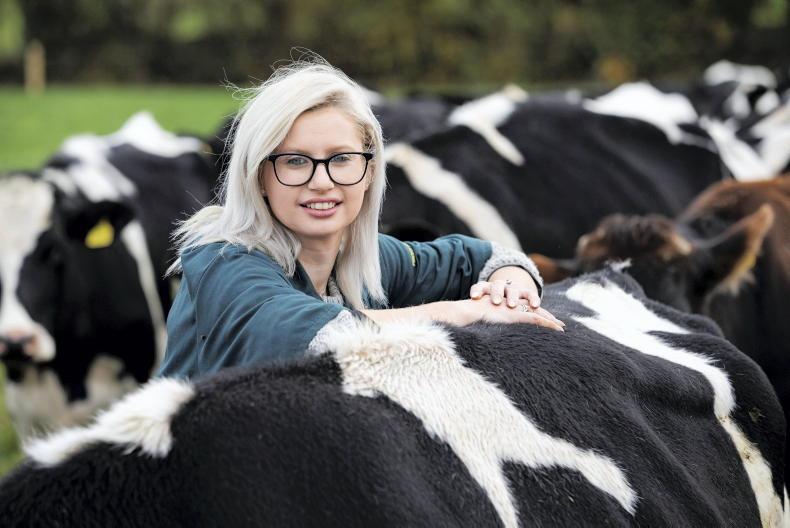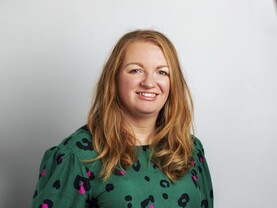Education was identified as a key area in increasing the number of female farmers at a talk on the topic in front of a Dáil committee.
This was highlighted both in terms of raising awareness of female farmers in schools and making some agricultural courses and programmes more welcoming for women.
Members of the Women in Agriculture Stakeholders Group (WASG), representing various farm organisations, appeared via video link in front of the Joint Committee on Agriculture, Food and the Marine on Tuesday.
Louise Crowley of Macra na Feirme said that education is needed in primary schools “from the ground up” around female farmers.
She added that programmes such as Facetime a Farmer could be used in classrooms to raise awareness of female farmers.
Having female only Knowledge Transfer (KT) schemes was also discussed.
Third-level
The number of women attending Teagasc agricultural colleges versus those studying agriculture in a university was also raised.
Hannah Quinn-Mulligan, WASG chair, said women make up only 10% of students in ag colleges, while in university it was a 50/50 spilt, though women are more likely to go into an innovation role after, as opposed to working on farm.
Speaking of her own experience of doing her Green Cert, Crowley said: “I went on to go to an agricultural college [after secondary school]. There were 107 lads in my course and I was the only female.
“It wasn’t an issue for me, but the ag college felt obliged to ring me before that course started to ask me was I going to be comfortable to attend as the only female or did I want to go to another college like UL or CIT.
“It didn’t bother me, I knew what I wanted to do."
Farm names
The issue of farm names and female farmers was raised by a committee member.
Senator Paul Daly said many families would have an issue if their surname left the farm, and asked what could be done to address this.
Quinn-Mulligan said double-barrel names or the women in question keeping their maiden names could help solve such issues.
“The worst thing that can happen with double-barrel names is that the children will learn their alphabet that much faster.
“It is not a big deal anymore. If the name is that important just turn it into a double-barrel, or a woman can keep her maiden name in a marriage.”
Crowley added that some farms are now registered as companies and have a company name, making this less of a problem.
Culture
The male-dominated culture around farming was also discussed.
Quinn-Mulligan said that mechanisation of farms had levelled the playing field for men and women.
“The tractor outside does not know if a man or a woman is turning the key in the ignition.
“The buttons on a milking machine and the buttons on a washing machine are not very different. Anyone who says differently hasn’t turned on a washing machine in a while,” she added.
Read more
Women in agri ‘cautiously optimistic about CAP’
Education was identified as a key area in increasing the number of female farmers at a talk on the topic in front of a Dáil committee.
This was highlighted both in terms of raising awareness of female farmers in schools and making some agricultural courses and programmes more welcoming for women.
Members of the Women in Agriculture Stakeholders Group (WASG), representing various farm organisations, appeared via video link in front of the Joint Committee on Agriculture, Food and the Marine on Tuesday.
Louise Crowley of Macra na Feirme said that education is needed in primary schools “from the ground up” around female farmers.
She added that programmes such as Facetime a Farmer could be used in classrooms to raise awareness of female farmers.
Having female only Knowledge Transfer (KT) schemes was also discussed.
Third-level
The number of women attending Teagasc agricultural colleges versus those studying agriculture in a university was also raised.
Hannah Quinn-Mulligan, WASG chair, said women make up only 10% of students in ag colleges, while in university it was a 50/50 spilt, though women are more likely to go into an innovation role after, as opposed to working on farm.
Speaking of her own experience of doing her Green Cert, Crowley said: “I went on to go to an agricultural college [after secondary school]. There were 107 lads in my course and I was the only female.
“It wasn’t an issue for me, but the ag college felt obliged to ring me before that course started to ask me was I going to be comfortable to attend as the only female or did I want to go to another college like UL or CIT.
“It didn’t bother me, I knew what I wanted to do."
Farm names
The issue of farm names and female farmers was raised by a committee member.
Senator Paul Daly said many families would have an issue if their surname left the farm, and asked what could be done to address this.
Quinn-Mulligan said double-barrel names or the women in question keeping their maiden names could help solve such issues.
“The worst thing that can happen with double-barrel names is that the children will learn their alphabet that much faster.
“It is not a big deal anymore. If the name is that important just turn it into a double-barrel, or a woman can keep her maiden name in a marriage.”
Crowley added that some farms are now registered as companies and have a company name, making this less of a problem.
Culture
The male-dominated culture around farming was also discussed.
Quinn-Mulligan said that mechanisation of farms had levelled the playing field for men and women.
“The tractor outside does not know if a man or a woman is turning the key in the ignition.
“The buttons on a milking machine and the buttons on a washing machine are not very different. Anyone who says differently hasn’t turned on a washing machine in a while,” she added.
Read more
Women in agri ‘cautiously optimistic about CAP’






 This is a subscriber-only article
This is a subscriber-only article










SHARING OPTIONS: